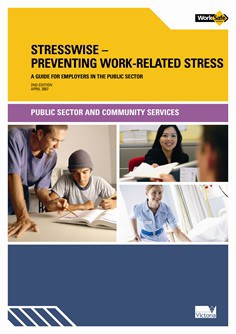The Victorian Government’s workplace health strategy may be “coughing up blood” but health promotion continues. Last week, Australian health insurer, Medibank Private, released some statistics and cost estimates related to physical inactivity.
According to the media release, physical inactivity costing the Australian economy $13.8 billion a year. The findings are based on research conducted in conjunction with KPMG-Econtech which builds on Medibank’s 2007 research and “captures the healthcare costs, economy wide productivity costs, and the mortality costs of individuals passing away prematurely as a result of physical inactivity.”
Craig Bosworth of Medibank Private says,
“Most Australians are aware of the benefits of physical activity but this latest round of Medibank research has revealed some alarming effects of physical inactivity. An estimated 16,179 people die prematurely each year due to conditions and diseases attributable to physical inactivity and that is frightening. And whilst the majority of these are from the older population there is also a large number of people dying under 74 years of age due to physical inactivity, particularly in the male population.”
Bosworth goes on to say:
“Like other health risk factors, physical inactivity can have an adverse effect on organisations as well as individuals. Specifically, physical inactivity can impact on employee productivity by causing increased absenteeism and presenteeism, which impose direct economic costs on employers. The Medibank research has found that productivity loss due to physical inactivity equates to 1.8 working days per worker per year.”
Three audio statements on this research are available – physical-inactivity-telephone-grabs-edit
The SuperFriend Industry Funds Forum Mental Health Foundation has also released statistics on mental health in the workplace. The survey also found that 50 per cent of Australians admit to often feeling stressed and a quarter often feel depressed.
John Mendoza, Chair of SuperFriend’s Mental Health Reference Group, said, “There is increasing evidence of a link between stress in the workplace and mental illness. The cost of workplace stress to Australian business is potentially crippling.” Listen – workplace-mental-health-edit
The Superfriends survey found

- One in two Australians believe that having a few drinks is a good way to maintain or improve their mental health;
- 80 per cent of Australians believe watching TV has a positive impact on their mental health;
- Australians are putting their bodies ahead of their brains, with three-quarters of Australians engaged in activity to maintain or improve their physical health, while only 50 per cent are actively engaging in activity to maintain or improve their mental health.
- Older Australians are more likely to heed the call ‘use it or lose it’. While 57 per cent of all Australians feel they take good care of their mental health, 68 per cent of those over 50 feel they are looking after themselves emotionally.
- Australians aged 40 to 49 are the unhappiest and unhealthiest. Those in this age group are more likely to feel stressed and depressed and less likely to look after their physical and mental health.
A good starting point in planning to manage stress is the StressWise publication by WorkSafe Victoria.
For many decades, perhaps centuries, unhappiness at work was countered, to varying degrees, through the consumption of alcohol. According to the latest Australian Unity Wellbeing Index people who drink everyday are the happiest, whereas non-drinkers have a lower sense of wellbeing.
Amanda Hagan of Australian Unity summarises some of the research findings and supports the link between physical activity and positive wellbeing. Listen – australian-unity-wellbeing-index-aap-medianet-edit

One thought on “Physical activity, mental health, alcohol consumption and productivity”